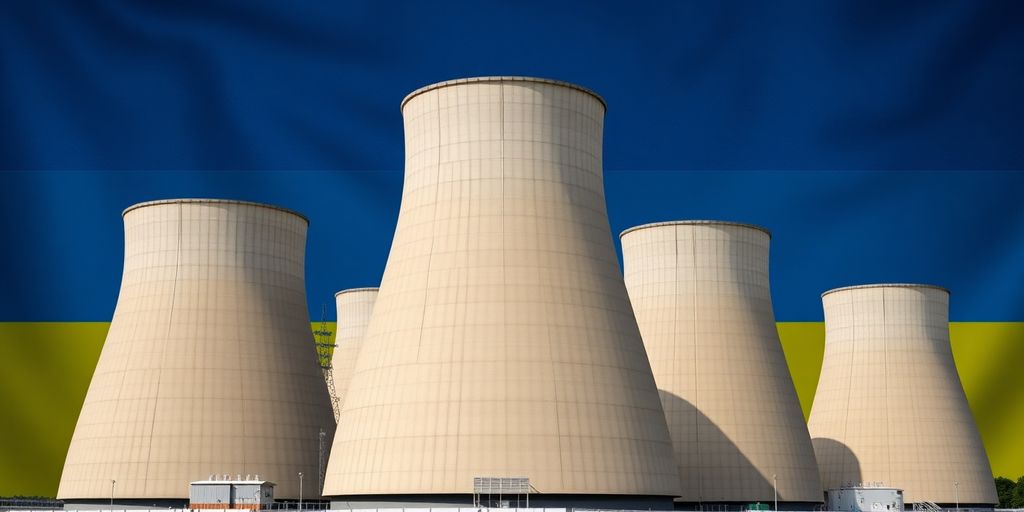Bulgaria has unexpectedly decided against selling two unused Russian nuclear reactors to Ukraine, a move influenced by internal political dynamics and concerns over energy security. The decision, announced by Deputy Prime Minister Atanas Zafirov, has significant implications for Ukraine’s nuclear expansion plans amid ongoing energy challenges.
Key Takeaways
- Bulgaria will not sell two Russian-made VVER-1000 reactors to Ukraine.
- The decision was influenced by the pro-Russian Bulgarian Socialist Party (BSP).
- Ukraine had planned to use the reactors for the Khmelnytskyi Nuclear Power Plant expansion.
- The proposed deal was valued at over €600 million.
Background of the Reactor Sale
The two reactors in question have been in storage since Bulgaria abandoned plans to construct the Belene Nuclear Power Plant in 2010. Instead, Bulgaria opted to enhance its existing Kozloduy Nuclear Power Plant with new units utilizing American technology. The reactors were seen as redundant assets, and Ukraine expressed interest in acquiring them to complete its Khmelnytskyi Nuclear Power Plant, which is compatible with the VVER-1000 design.
Political Dynamics at Play
The decision to withdraw from the sale agreement was largely driven by the BSP, which has maintained a pro-Russian stance throughout the ongoing conflict in Ukraine. Zafirov emphasized that the reactors are crucial for Bulgaria’s energy security and economic independence, stating, "We were adamant from the start that these reactors are not for sale."
This reversal comes after a series of political negotiations where Prime Minister Boyko Borissov had initially confirmed the sale, suggesting it would be financially beneficial for Bulgaria. However, the BSP’s influence within the ruling coalition ultimately led to a unified decision against the sale.
Implications for Ukraine
Ukraine’s energy sector is currently under significant strain, particularly due to the ongoing conflict with Russia, which has severely impacted its energy infrastructure. The Khmelnytskyi Nuclear Power Plant is one of the few operational nuclear facilities in Ukraine, and the acquisition of the Bulgarian reactors was seen as a critical step in expanding its nuclear capacity to meet growing energy demands.
Ukrainian officials expressed disappointment over Bulgaria’s decision, noting that they had not received formal notification and learned about the reversal through media reports. The lack of available alternatives for the reactors complicates Ukraine’s plans to enhance its energy security.
Future of Bulgaria’s Nuclear Plans
Despite the abandonment of the Belene project, Zafirov asserted that Bulgaria has the necessary expertise and infrastructure to develop its nuclear energy capabilities independently. He indicated that the government is considering restarting the Belene project, which has already consumed over €1 billion without yielding results.
The decision not to sell the reactors may have broader implications for Bulgaria’s relationships within the European Union, particularly as it navigates its position between pro-European and pro-Russian factions within its political landscape. As the situation evolves, both Bulgaria and Ukraine will need to reassess their energy strategies in light of these developments.
Sources
- Ukraine will be left without Russian equipment for nuclear power plants from Bulgaria: Sofia has changed her
mind — EADaily, April 15th, 2025 — Politics, Russia, EADaily. - Bulgarian Socialists Block Sale of Redundant Nuclear Reactors to Ukraine ━ The European Conservative, The European Conservative.
- Bulgarian government says it will not sell reactors to Ukraine for Khmelnytskyi NPP, Ukrinform.
- Bulgaria unexpectedly rejects sale of Russian nuclear reactors to Ukraine, Euromaidan Press.
- Bulgaria unexpectedly rejects sale of Russian nuclear reactors to Ukraine, Euractiv.





